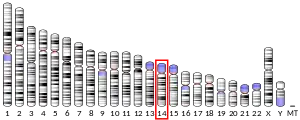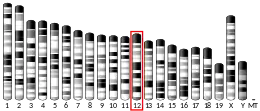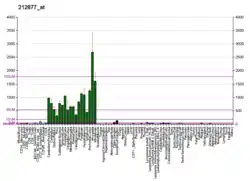| KLC1 | |||||||||||||||||||||||||||||||||||||||||||||||||||
|---|---|---|---|---|---|---|---|---|---|---|---|---|---|---|---|---|---|---|---|---|---|---|---|---|---|---|---|---|---|---|---|---|---|---|---|---|---|---|---|---|---|---|---|---|---|---|---|---|---|---|---|
| |||||||||||||||||||||||||||||||||||||||||||||||||||
| Identifiers | |||||||||||||||||||||||||||||||||||||||||||||||||||
| Aliases | KLC1, KLC, KNS2, KNS2A, kinesin light chain 1 | ||||||||||||||||||||||||||||||||||||||||||||||||||
| External IDs | OMIM: 600025 MGI: 107978 HomoloGene: 4056 GeneCards: KLC1 | ||||||||||||||||||||||||||||||||||||||||||||||||||
| |||||||||||||||||||||||||||||||||||||||||||||||||||
| |||||||||||||||||||||||||||||||||||||||||||||||||||
| |||||||||||||||||||||||||||||||||||||||||||||||||||
| |||||||||||||||||||||||||||||||||||||||||||||||||||
| |||||||||||||||||||||||||||||||||||||||||||||||||||
| Wikidata | |||||||||||||||||||||||||||||||||||||||||||||||||||
| |||||||||||||||||||||||||||||||||||||||||||||||||||
Kinesin light chain 1 is a protein that in humans is encoded by the KLC1 gene.[5][6][7]
Conventional kinesin is a tetrameric molecule composed of two heavy chains and two light chains, and transports various cargos along microtubules toward their plus ends. The heavy chains provide the motor activity, while the light chains bind to various cargos. This gene encodes a member of the kinesin light chain family. It associates with kinesin heavy chain through an N-terminal domain, and six tetratricopeptide repeat (TPR) motifs are thought to be involved in binding of cargos such as vesicles, mitochondria, and the Golgi complex. Thus, kinesin light chains function as adapter molecules and not motors per se. Although previously named "kinesin 2", this gene is not a member of the kinesin-2 / kinesin heavy chain subfamily of kinesin motor proteins. Extensive alternative splicing produces isoforms with different C-termini that are proposed to bind to different cargos; however, the full-length nature of some of these variants has not been determined.[7]
Interactions
KLC1 has been shown to interact with MAPK8IP3,[6] KIF5B[8][9][10] and KIF5A.[9][10]
References
- 1 2 3 GRCh38: Ensembl release 89: ENSG00000126214 - Ensembl, May 2017
- 1 2 3 GRCm38: Ensembl release 89: ENSMUSG00000021288 - Ensembl, May 2017
- ↑ "Human PubMed Reference:". National Center for Biotechnology Information, U.S. National Library of Medicine.
- ↑ "Mouse PubMed Reference:". National Center for Biotechnology Information, U.S. National Library of Medicine.
- ↑ Cabeza-Arvelaiz Y, Shih LC, Hardman N, Asselbergs F, Bilbe G, Schmitz A, White B, Siciliano MJ, Lachman LB (Feb 1994). "Cloning and genetic characterization of the human kinesin light-chain (KLC) gene". DNA Cell Biol. 12 (10): 881–92. doi:10.1089/dna.1993.12.881. PMID 8274221.
- 1 2 Bowman AB, Kamal A, Ritchings BW, Philp AV, McGrail M, Gindhart JG, Goldstein LS (Jan 2001). "Kinesin-dependent axonal transport is mediated by the sunday driver (SYD) protein". Cell. 103 (4): 583–94. doi:10.1016/S0092-8674(00)00162-8. PMID 11106729.
- 1 2 "Entrez Gene: KNS2 kinesin 2".
- ↑ Diefenbach, Russell J; Diefenbach Eve; Douglas Mark W; Cunningham Anthony L (Dec 2002). "The heavy chain of conventional kinesin interacts with the SNARE proteins SNAP25 and SNAP23". Biochemistry. 41 (50): 14906–15. doi:10.1021/bi026417u. ISSN 0006-2960. PMID 12475239.
- 1 2 Rahman, A; Friedman D S; Goldstein L S (Jun 1998). "Two kinesin light chain genes in mice. Identification and characterization of the encoded proteins". J. Biol. Chem. 273 (25): 15395–403. doi:10.1074/jbc.273.25.15395. ISSN 0021-9258. PMID 9624122.
- 1 2 Rahman, A; Kamal A; Roberts E A; Goldstein L S (Sep 1999). "Defective kinesin heavy chain behavior in mouse kinesin light chain mutants". J. Cell Biol. 146 (6): 1277–88. doi:10.1083/jcb.146.6.1277. ISSN 0021-9525. PMC 2156125. PMID 10491391.
Further reading
- Miki H, Okada Y, Hirokawa N (2005). "Analysis of the kinesin superfamily: insights into structure and function". Trends Cell Biol. 15 (9): 467–76. doi:10.1016/j.tcb.2005.07.006. PMID 16084724.
- Goedert M, Marsh S, Carter N (1996). "Localization of the human kinesin light chain gene (KNS2) to chromosome 14q32.3 by fluorescence in situ hybridization". Genomics. 32 (1): 173–5. doi:10.1006/geno.1996.0102. PMID 8786116.
- Chernajovsky Y, Brown A, Clark J (1997). "Human kinesin light (beta) chain gene: DNA sequence and functional characterization of its promoter and first exon". DNA Cell Biol. 15 (11): 965–74. doi:10.1089/dna.1996.15.965. PMID 8945637.
- Khodjakov A, Lizunova EM, Minin AA, et al. (1998). "A specific light chain of kinesin associates with mitochondria in cultured cells". Mol. Biol. Cell. 9 (2): 333–43. doi:10.1091/mbc.9.2.333. PMC 25259. PMID 9450959.
- Rahman A, Friedman DS, Goldstein LS (1998). "Two kinesin light chain genes in mice. Identification and characterization of the encoded proteins". J. Biol. Chem. 273 (25): 15395–403. doi:10.1074/jbc.273.25.15395. PMID 9624122.
- Gyoeva FK, Bybikova EM, Minin AA (2000). "An isoform of kinesin light chain specific for the Golgi complex". J. Cell Sci. 113 (11): 2047–54. doi:10.1242/jcs.113.11.2047. PMID 10806115.
- Kamal A, Stokin GB, Yang Z, et al. (2001). "Axonal transport of amyloid precursor protein is mediated by direct binding to the kinesin light chain subunit of kinesin-I". Neuron. 28 (2): 449–59. doi:10.1016/S0896-6273(00)00124-0. PMID 11144355.
- Verhey KJ, Meyer D, Deehan R, et al. (2001). "Cargo of kinesin identified as JIP scaffolding proteins and associated signaling molecules". J. Cell Biol. 152 (5): 959–70. doi:10.1083/jcb.152.5.959. PMC 2198804. PMID 11238452.
- Diefenbach RJ, Diefenbach E, Douglas MW, Cunningham AL (2003). "The heavy chain of conventional kinesin interacts with the SNARE proteins SNAP25 and SNAP23". Biochemistry. 41 (50): 14906–15. doi:10.1021/bi026417u. PMID 12475239.
- Strausberg RL, Feingold EA, Grouse LH, et al. (2003). "Generation and initial analysis of more than 15,000 full-length human and mouse cDNA sequences". Proc. Natl. Acad. Sci. U.S.A. 99 (26): 16899–903. Bibcode:2002PNAS...9916899M. doi:10.1073/pnas.242603899. PMC 139241. PMID 12477932.
- Behrends U, Schneider I, Rössler S, et al. (2003). "Novel tumor antigens identified by autologous antibody screening of childhood medulloblastoma cDNA libraries". Int. J. Cancer. 106 (2): 244–51. doi:10.1002/ijc.11208. PMID 12800201.
- McCart AE, Mahony D, Rothnagel JA (2004). "Alternatively spliced products of the human kinesin light chain 1 (KNS2) gene". Traffic. 4 (8): 576–80. doi:10.1034/j.1600-0854.2003.00113.x. PMID 12839500.
- Suzuki Y, Yamashita R, Shirota M, et al. (2004). "Sequence comparison of human and mouse genes reveals a homologous block structure in the promoter regions". Genome Res. 14 (9): 1711–8. doi:10.1101/gr.2435604. PMC 515316. PMID 15342556.
- Dhaenens CM, Van Brussel E, Schraen-Maschke S, et al. (2005). "Association study of three polymorphisms of kinesin light-chain 1 gene with Alzheimer's disease". Neurosci. Lett. 368 (3): 290–2. doi:10.1016/j.neulet.2004.07.040. PMID 15364413. S2CID 25039113.
- Gerhard DS, Wagner L, Feingold EA, et al. (2004). "The status, quality, and expansion of the NIH full-length cDNA project: the Mammalian Gene Collection (MGC)". Genome Res. 14 (10B): 2121–7. doi:10.1101/gr.2596504. PMC 528928. PMID 15489334.
- Benzinger A, Muster N, Koch HB, et al. (2005). "Targeted proteomic analysis of 14-3-3 sigma, a p53 effector commonly silenced in cancer". Mol. Cell. Proteomics. 4 (6): 785–95. doi:10.1074/mcp.M500021-MCP200. PMID 15778465.
- Kimura K, Wakamatsu A, Suzuki Y, et al. (2006). "Diversification of transcriptional modulation: large-scale identification and characterization of putative alternative promoters of human genes". Genome Res. 16 (1): 55–65. doi:10.1101/gr.4039406. PMC 1356129. PMID 16344560.
- Pernigo S; Lamprecht A; Steiner RA; Dodding MP (2013). "Structural basis for kinesin-1:cargo recognition". Science. 340 (6130): 356–359. Bibcode:2013Sci...340..356P. doi:10.1126/science.1234264. PMC 3693442. PMID 23519214.





